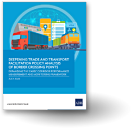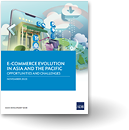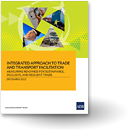The new economy: A peek at Armenia
The development of information and communication technology (ICT) and the resulting formation of the “new economy” have revolutionized the way we live and conduct our day-to-day business.
New economy is one that is based on innovative or new technologies. It is a new industry where people depend more and more on computers, telecommunications, and the internet to produce, sell, and distribute goods and services.
Over the last few decades, the internet has eliminated unnecessary barriers, enabling new entrants to find the most favorable prices for goods or services. Globally, online trading and e-commerce have reduced transaction costs and facilitated communication and trade between potential partners across countries and continents.
In this period of globalization, the competitiveness of a country now depends on its ability to use internet technologies, and accelerate its transition from the traditional to the new economy. A landlocked country such as Armenia should, therefore, capitalize on the opportunities that ICT bring to increase the pace of its development.
The development of e-commerce in the country should be promoted to reduce logistics and transport costs and increase its exports of domestic goods and services.
In 2012, total e-commerce transactions in Armenia amounted to $8.6 million, composing only 0.08% of GDP. Though it is higher than some of its neighbors1 it lags behind other countries in the region including Iran and Turkey where e-commerce transactions reached $1 billion and $162 million, respectively.
Barriers to expansion of network trade
Globally, business-to-consumer or “B2C” e-commerce sales reached more than $1.5 trillion in 2013 due to growth in emerging markets.
Armenia’s (domestic and foreign) network trade therefore has much room to grow. But a number of factors hinder its development:
- Low penetration in rural areas. While the total number of internet users is growing in urban hubs of the country, the rural regions are being left behind. Some parts of the population, particularly in remote areas, do not have access to computers, leaving them with a gap in computer usage skills.
- Absence of relevant infrastructures related to network trade. Legislation regulating commercial activity is focused only on physical trade. Moreover, there is no regulation related to the policy of goods’ return, delay, and damage or lost of items. In addition, e-commerce companies such as eBay, Alibaba, Amazon and Rakuten are also not present in Armenia. Instead, multinational corporations mainly follow brick and mortar business models.
- Language and information asymmetry. Most websites do not provide enough options for language preferences or they are mostly in Armenian, alienating foreign consumers. Armenian e-commerce websites also publish incomplete information on product details, purchase conditions and delivery procedures, discouraging foreign consumers to buy.
- Trust issue and security threat of information. Studies show that trust is very important for the development of e-commerce and that trust may be significantly influenced by the culture of a given society. In Armenia, consumers are generally not inclined to buy goods without prior direct inspection. Moreover, buying goods online is still a relatively new practice in the country. Individuals prefer to pay in cash rather than use their credit cards to pay online.
Meanwhile, e-commerce in the business-to-business or “B2B” segment in Armenia also faces a few challenges. E-businesses in Armenia are underdeveloped—the degree of automation of business processes in Armenian companies remains weak. E-commerce will flourish if industries are willing to expand their consumer and supplier base. However, monopolization of production and the inherent risks in the Armenian economy discourage business expansion.
Way Forward
Given these challenges, three policy directions can be outlined for the development of e-commerce in Armenia. First, policies that promote domestic e-commerce should be encouraged, allowing Armenia to strengthen its internal e-business relationship. Internal e-commerce will then link the country to foreign e-commerce markets and expand its presence globally. Second, the country can open up to foreign markets by developing internet services with the support of its IT specialists. As shown in some case studies, IT specialists in Armenia are highly skilled; they can be tapped to provide IT-related/e-commerce services to the rest of the world. Finally, Armenia should also welcome imports of products through e-commerce, to reduce monopolistic behavior in its domestic markets.




